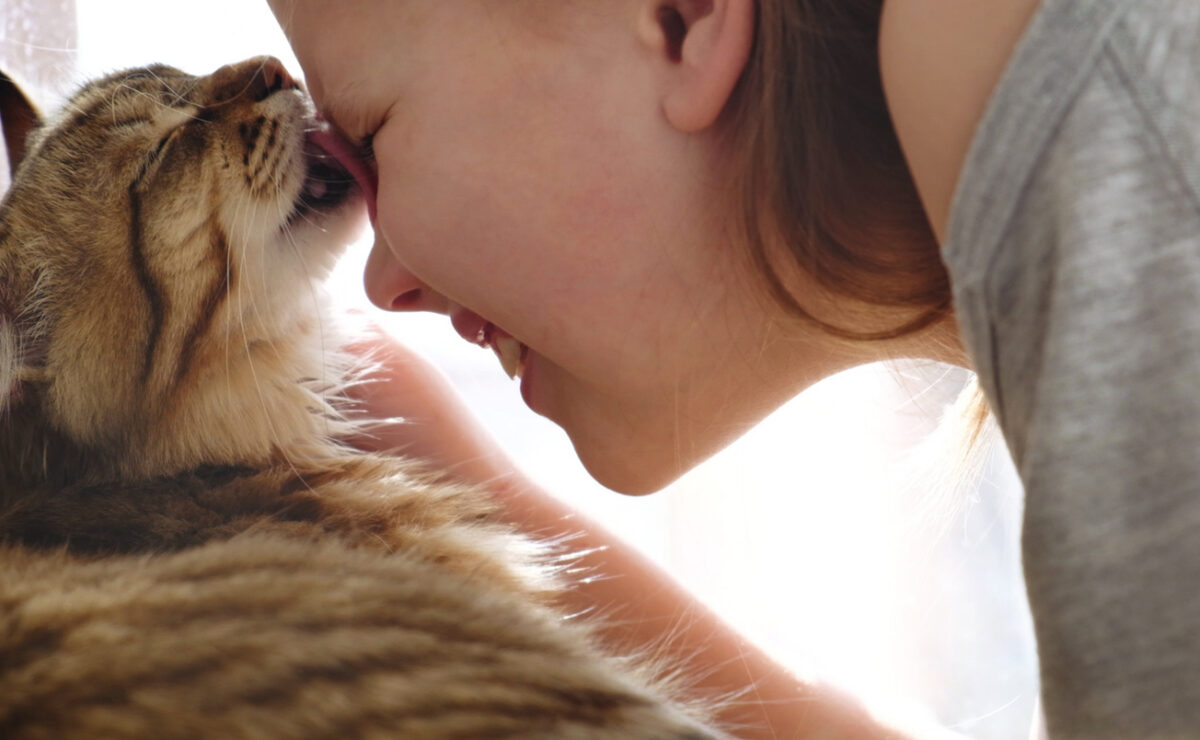Cinema Veterinary Centre | Santa Clarita, CA
At Cinema Veterinary Centre in Santa Clarita, CA, we care for a wide variety of animals—including dogs, cats, and exotic pets. While animals bring joy and companionship, they can also carry diseases that can be transmitted to humans. These are known as zoonotic diseases and understanding them is key to keeping both your family and animals safe.
What Are Zoonotic Diseases?
Zoonotic diseases are illnesses that are passed between animals and people. They may spread through contact with saliva, urine, feces, fur, feathers, skin, or contaminated environments. While many are mild, some can cause serious health complications, especially in young children, older adults, pregnant individuals, and people with weakened immune systems.
Cinema Veterinary Centre can help you prevent these diseases through client education, preventive care, and safe animal handling practices.
Common Zoonotic Diseases in Dogs and Cats

- Roundworms & Hookworms (Toxocariasis)
• Animal Symptoms: Bloated belly, vomiting, diarrhea, poor weight gain, worms in stool.
• Animal Transmission: Ingestion of contaminated soil, feces, or from infected mothers.
• Human Transmission: Contact with contaminated soil, pet fur, or feces.
• Human Symptoms: Rash, cough, vision issues, or internal organ involvement. - Ringworm (Dermatophytosis)
• Animal Symptoms: Patchy hair loss, flaky skin, itchiness.
• Animal Transmission: Contact with infected pets, people, or surfaces.
• Human Transmission: Touching infected fur, skin, bedding, or grooming tools.
• Human Symptoms: Itchy, red, ring-shaped rash. - Giardia (Giardiasis)
• Animal Symptoms: Diarrhea, weight loss, greasy stools.
• Animal Transmission: Contaminated water or infected feces.
• Human Transmission: Handling contaminated water or pet waste.
• Human Symptoms: Diarrhea, cramps, gas. - Leptospirosis
• Animal Symptoms: Fever, vomiting, muscle pain, yellowing of skin or eyes, kidney/liver damage.
• Animal Transmission: Contact with infected urine, puddles, or rodent-contaminated areas.
• Human Transmission: Through cuts or mucous membranes after contact with infected water or urine.
• Human Symptoms: Flu-like symptoms, organ damage. - Cat Scratch Disease (Bartonellosis)
• Animal Symptoms: Often no symptoms in cats.
• Animal Transmission: Spread by fleas between cats.
• Human Transmission: Scratches, bites, or licks from infected cats.
• Human Symptoms: Swollen lymph nodes, fever, fatigue. - Rabies
• Animal Symptoms: Behavior changes, excessive drooling, aggression, paralysis.
• Animal Transmission: Bites from infected animals.
• Human Transmission: Bite or saliva exposure.
• Human Symptoms: Neurological issues, fatal if not treated immediately.
Zoonotic Risks in Birds (including Backyard Chickens)

- Salmonella
• Animal Symptoms: Often none; may include diarrhea or reduced egg output.
• Animal Transmission: Contaminated feed, feces, or dirty living spaces.
• Human Transmission: Touching birds, eggs, or contaminated surfaces.
• Human Symptoms: Diarrhea, fever, abdominal pain. - Avian Influenza (Bird Flu) in Domestic Poultry
• Animal Symptoms: Sudden death, respiratory distress, facial swelling.
• Animal Transmission: Contact with wild birds or infected material.
• Human Transmission: Close contact with infected birds or droppings.
• Human Symptoms: Fever, cough, respiratory illness.
Note: Chickens and turkeys are particularly susceptible. Wild birds often carry the virus without showing signs and can infect domestic birds through shared water sources or droppings. Bird Flu is rare in pet birds but is possible if they are exposed.
- Campylobacter
• Animal Symptoms: Usually asymptomatic.
• Animal Transmission: Fecal contamination of water or feed.
• Human Transmission: Handling live birds or undercooked poultry.
• Human Symptoms: Diarrhea (often bloody), cramps, fever.
Note: It’s most often linked to poultry but can be found in any bird species. Transmission typically occurs through handling raw poultry or contact with bird feces.
- Psittacosis (Parrot Fever)
• Animal Symptoms: Lethargy, discharge from eyes/nose, breathing issues.
• Animal Transmission: Dry droppings or feather dust.
• Human Transmission: Inhalation of dust from infected cages.
• Human Symptoms: Flu-like symptoms, pneumonia.
Zoonotic Diseases in Exotic Pets

- Salmonella (Reptiles & Amphibians)
• Animal Symptoms: Usually none—many reptiles are natural carriers but are not affected by the disease themselves.
• Animal Transmission: Naturally carried in digestive systems.
• Human Transmission: Touching reptiles or their enclosures.
• Human Symptoms: Diarrhea, fever, stomach cramps. - Tularemia (Rabbits)
• Animal Symptoms: Fever, swollen lymph nodes, lethargy.
• Animal Transmission: Insect bites or wildlife contact.
• Human Transmission: Handling infected rabbits, tick bites.
• Human Symptoms: Skin ulcers, fever, lymph node swelling.
4. Rat-Bite Fever
- Carried by: Rats (and occasionally mice and gerbils)
- Animal Symptoms: Often asymptomatic in rodents
- Animal Transmission: Carried in saliva, urine, or feces
- Human Transmission: Bites, scratches, or even handling infected rodents
- Human Symptoms: Fever, rash, muscle pain, vomiting, joint pain
Note: This disease is often underdiagnosed but can be serious without treatment.
5. Hantavirus
- Carried by: Wild mice (especially deer mice); less common in pet rodents but still a risk
- Animal Symptoms: No signs in rodents
- Animal Transmission: Virus shed in urine, droppings, and saliva
- Human Transmission: Inhalation of airborne particles from contaminated bedding or droppings
- Human Symptoms: Fever, fatigue, muscle aches, and in severe cases, respiratory distress
6. Leptospirosis
- Carried by: Rats, mice
- Animal Symptoms: Often none in rodents
- Human Transmission: Contact with urine-contaminated water, bedding, or surfaces
- Human Symptoms: Flu-like symptoms, kidney or liver complications
For more information on zoonotic diseases and how to protect your household, visit the CDC’s Healthy Pets, Healthy People website.
How to Help Prevent Zoonotic Disease Infections
You can dramatically reduce the risk of zoonotic disease transmission with a few important practices:
Hygiene
• Wash hands thoroughly after handling animals, cages, or waste.
• Use gloves when cleaning litter boxes, coops, or helping with animal births.
• Teach children proper hygiene after pet contact.
Clean Environment
• Clean animal areas daily; disinfect regularly.
• Do not allow animals to drink from dirty water sources.
• Keep living areas well-ventilated and dry.
Pest and Wildlife Management
• Keep rodents and wild animals away from your animals’ enclosures.
• Do not allow pets to roam with wildlife.
• Report strange behavior in wild animals or birds.
Safe Interaction
• Avoid allowing animals to lick open wounds or faces.
• Discourage children from kissing or hugging animals too closely.
• Wear protective clothing during high-risk situations like births or illness outbreaks.
Veterinary Care
• Stay current with vaccines, especially rabies and leptospirosis.
• Follow your vet’s guidance on deworming and parasite control.
• Isolate sick animals and get them veterinary care right away.
Your Local Resource for Animal and Public Health
At Cinema Veterinary Centre, we proudly support families and animal lovers throughout Santa Clarita, CA. Whether you’re caring for a playful pup, a beloved cat, or an exotic companion, our team is here to help you prevent illness, manage disease risk, and provide compassionate care for pets of all kinds. As a Certified Fear Free Veterinary Center, we go the extra mile to ensure every visit is as stress-free and comfortable as possible—for both you and your pet.
Call us today to schedule a wellness exam or consultation.
661-253-9300

